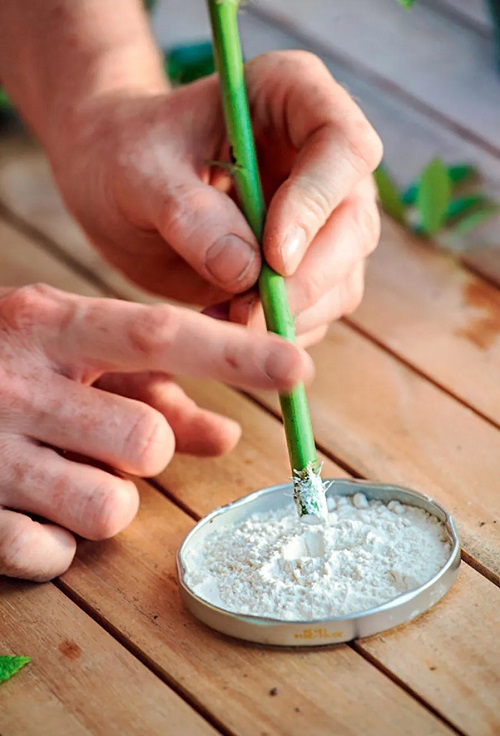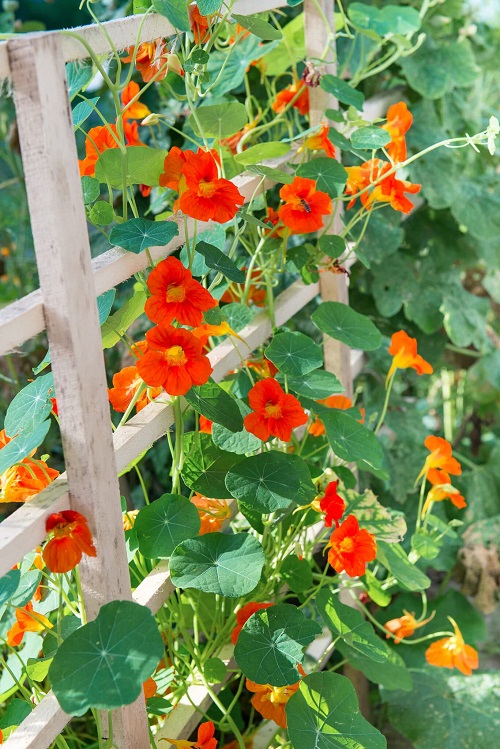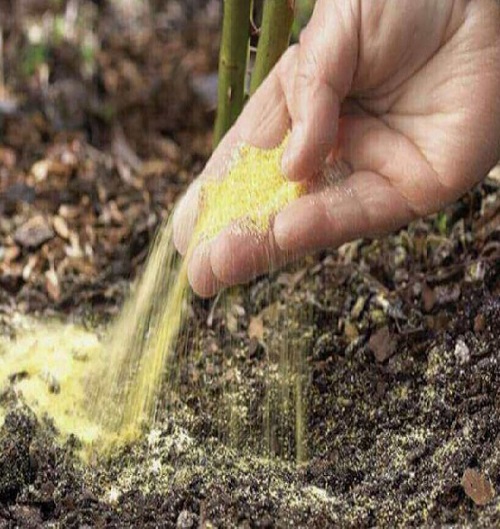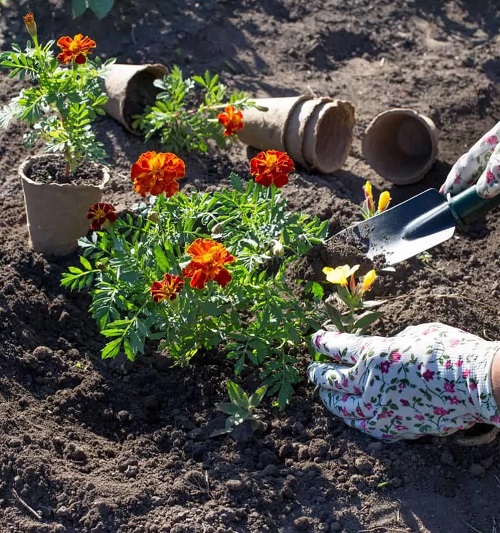Here’s a list of some Unconventional Gardening Tricks that you must use to up your garden game! Take notes!
Pro gardening is not about knowing everything about growing plants but discovering the tiny tidbits that make gardening easier so your plants flourish without needing care all the time. Lucky for you, we’ve got Unconventional Gardening Tricks to Become a Pro Gardener in no time.
Unconventional Gardening Tricks
1. Using Aspirin for Rooting
Aspirin has salicylic acid, which works like a rooting hormone. You can use it on all kinds of plants, like roses and tomatoes, to help them root faster. Just crush a tablet, mix the powder in a gallon of water, and dip cuttings into this solution before planting them.
2. The Potato Propagation Technique
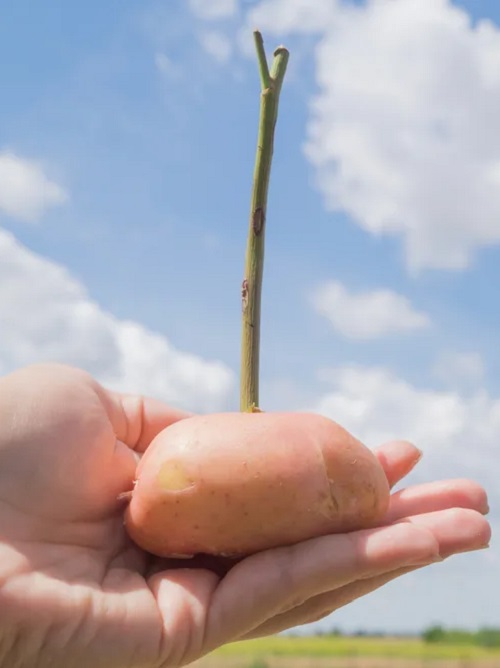
Did you know you could use a potato to propagate stem cuttings? It keeps the cutting moist and helps it root. Just make a small cut in a potato and gently slide the cutting in so it is secure.
3. Honey as a Rooting Agent
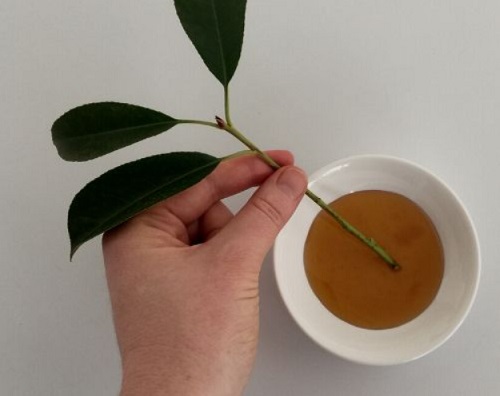
Honey is a natural antiseptic and can help root plants better. Just mix a tablespoon of honey in 2 cups of boiling water and then let the mix cool down. Now, you can dip the cut end in this solution and plant the cutting like you normally do.
4. Cola for Acid-Loving Plants

Coca cola contains phosphoric acid which is good for acid-loving plants–like blueberries. Just dilute it in water and then use it as a spray to mist the plants.
5. Cinnamon Powder for Disease Prevention
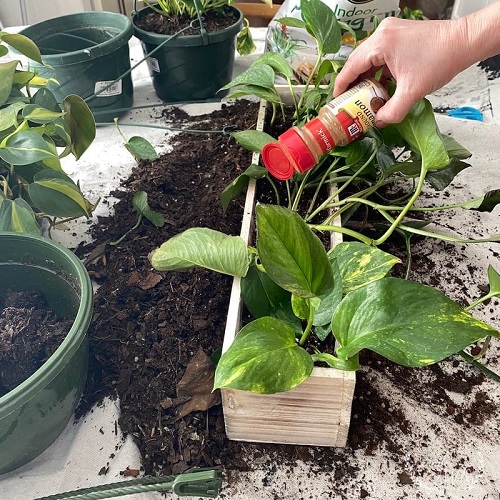
Cinnamon is known for its antifungal properties, so you should definitely use it to avoid fungal diseases in your plants. All you need to do is dip a cutting in water, then roll it in cinnamon powder once. Then, plant it, and the plant won’t catch any fungal disease.
6. Fish Tank Water for Fertilizing
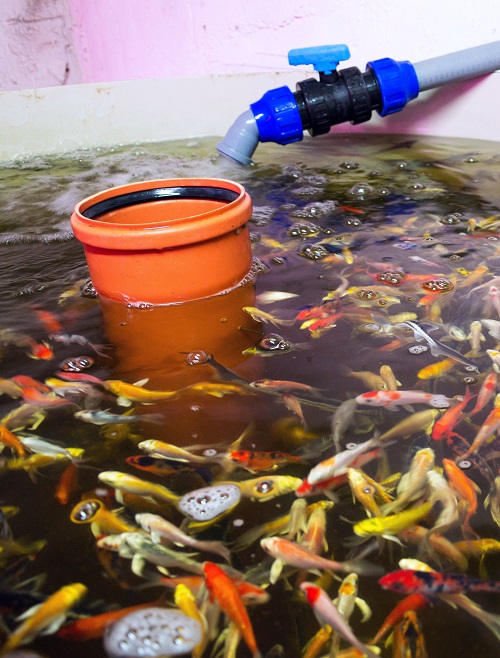
Fish tank water is a really good and natural fertilizer. And you have to change water in the fish tank after a few days anyway, so why not make the most of it and do your part to save water? Just reuse it to water your plants, and you’ll be surprised by the results.
7. DIY Mini Greenhouse Using Plastic Bottles
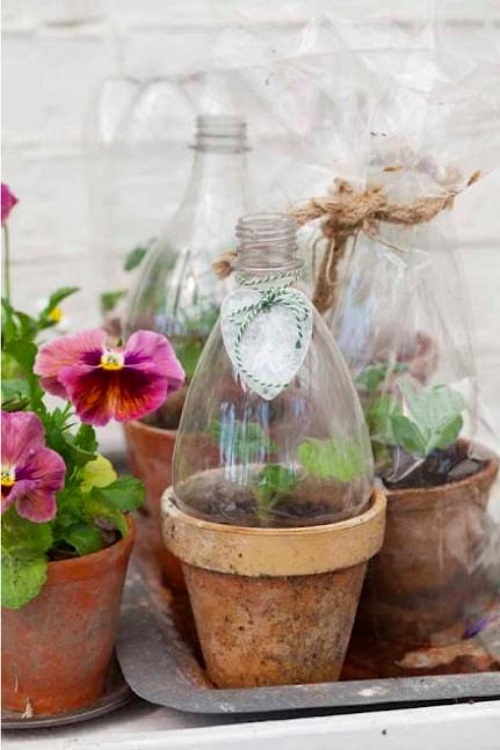
If you have scrap plastic bottles lying around the house, you can use these as a cover to create a mini dome over small pots for a greenhouse effect. You won’t need to check these regularly, and they are great for propagating new plants.
8. Cooking Water for Mineral Boost
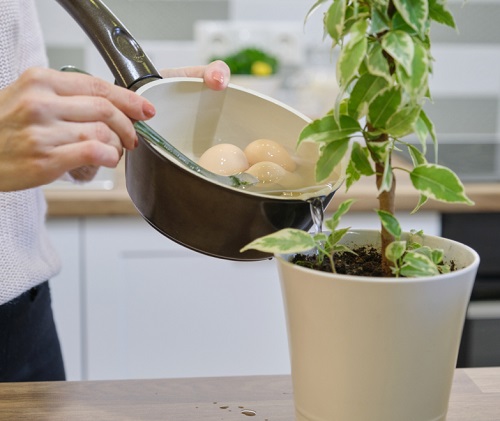
This trick might seem like it’s made up, but trust us, it works wonders. Any leftover water that you have after washing pulses or vegetables, even after boiling eggs, is full of nutrients, so don’t throw it down the drain. Water your plants with it.
9. Using Diapers to Retain Moisture
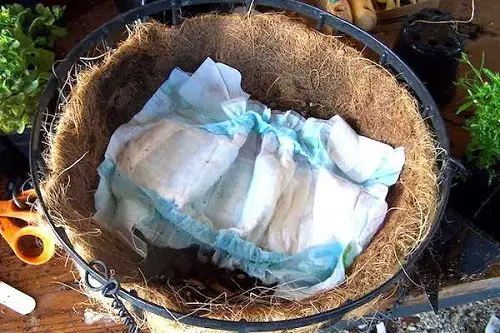
Baby diapers are made of absorbent materials that soak up all the water. You can use this to your advantage and use the diaper to retain soil moisture when you’re going away for a few days.
It’s also a great trick for plants like Hydrangeas that need constant moisture. Just place a clean diaper in the bottom of the pot and then add the soil and plant to it like usual.
10. Baking Soda for Sweeter Tomatoes
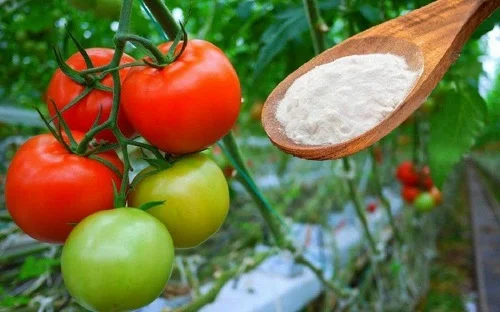
Baking soda can reduce the acidic content of the soil so you will have sweeter tomatoes. Mix a bit of it in water, and then use this mix to water your tomato plants. Thank us later.
11. Milk for Calcium Boost
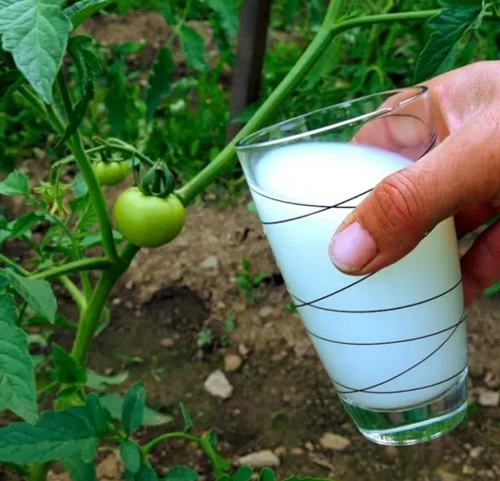
Milk is not only great for you but for your plants, too. It can help prevent blossom end rot. Mix milk in water in a 1 to 4 ratio and use the mix to water the plants.
12. Banana Peels for Rose Fertilizer
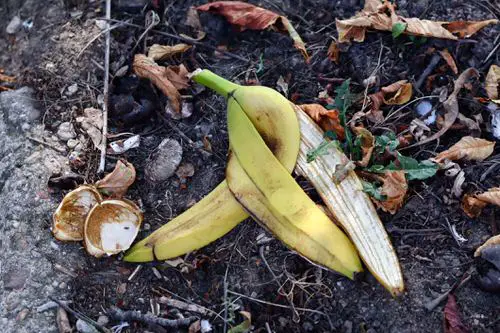
Banana peels are rich in potassium, which can promote more flowering. Bury a few of these near the base of flowers, and it will work as a slow-release fertilizer, helping them bloom.
13. Tea Bags to Enrich Soil
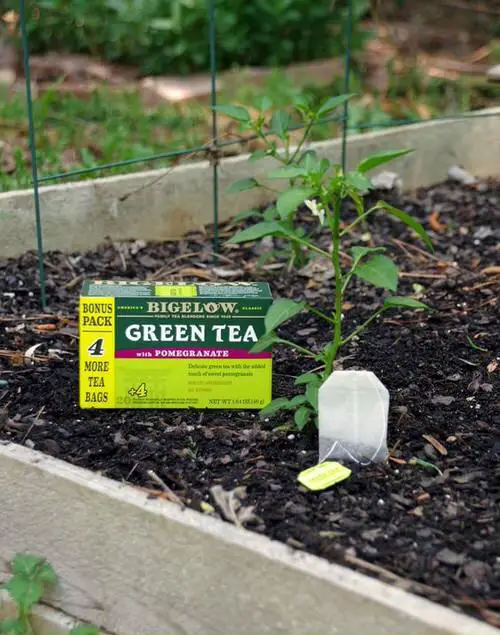
Tea bags can enrich the garden soil as they decompose, so you shouldn’t throw them away. They’re great for a vegetable garden and for fruit trees.
14. Epsom Salt for Greener Leaves
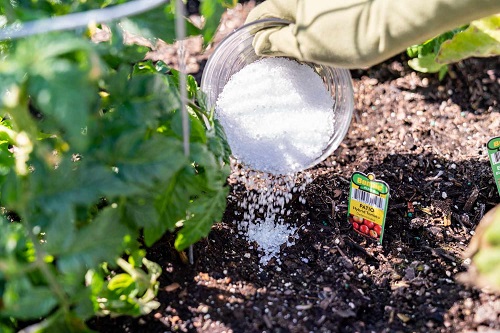
Did you know that Epsom salt is also a good source of Magnesium? Yes, it is! If you mix it in water and then use this mix to water your plants, it will help chlorophyll production, and you’ll have greener and more vibrant foliage.
15. Aluminum Foil to Deter Aphids
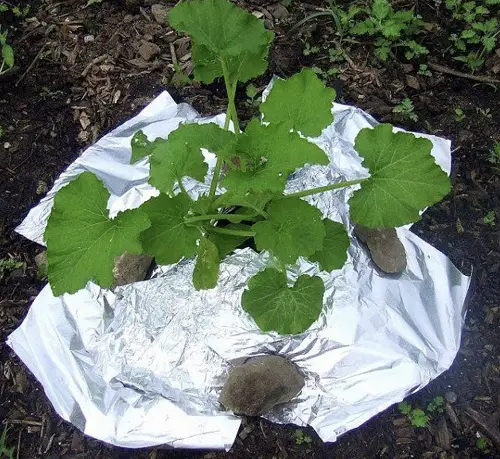
Aluminum foil is an amazing and unconventional gardening trick to keep away aphids. The reflective surface of the foil shines bright in the sun, and aphids stay away from it because they can’t stand light. Put it around the plant’s base, as shown above in the image.
16. Hair as a Deer Repellent
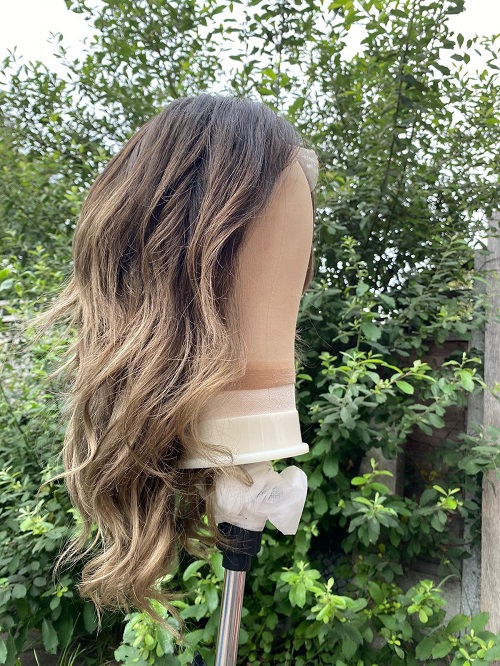
You can keep deer from nibbling and destroying your garden by keeping a wig made of natural hair among the plants. Human hair has a specific scent that keeps the deer away. You can also spread hair strands on the garden floor.
17. Using Citrus Peels as Seed Starters
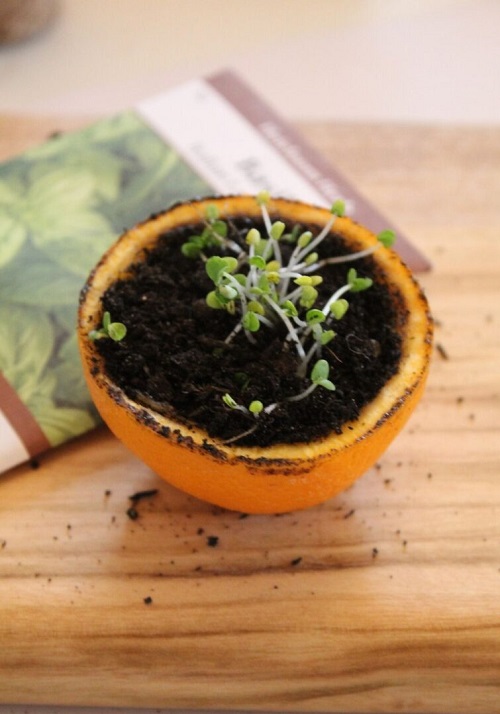
Just like potatoes, you can put citrus peels to good use and grow seedlings in them. Once the seedlings are ready to be transplanted, you don’t need to get rid of the peels–they would decompose in the soil and act as a fertilizer. Win-win!
18. Vinegar for Acid-Loving Plants
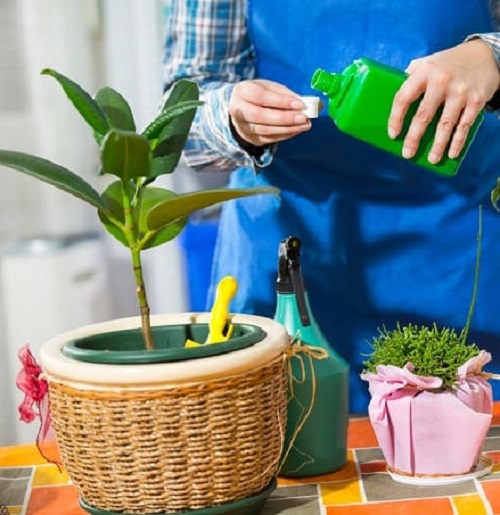
Vinegar is great for acid-loving plants because it can lower the pH of the soil. But don’t put it directly in the soil; dilute it in water first. Also, it would be good to check the soil pH before and after you do it.
19. Creating a DIY Drip Irrigation with Yarn
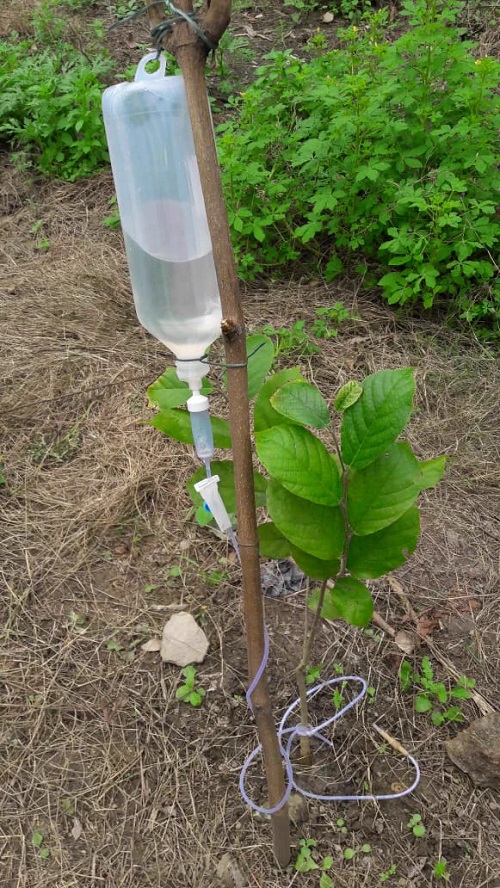
We guarantee you didn’t know you could make your own drip irrigation system with yarn and a plastic bottle or jar. It’s really simple–fill a jar with water and insert one end of the yarn inside. The other does into the soil.
20. Using Oyster Shells to Improve Soil Texture
Oyster shells are rich in calcium and can help improve the texture of the soil. They work well for leafy green vegetables like spinach. So the next time you grow it, get your hands on some oyster shells, crush these into small pieces and powder and mix it in the garden soil.
21. Planting in Cinder Blocks for Space Saving
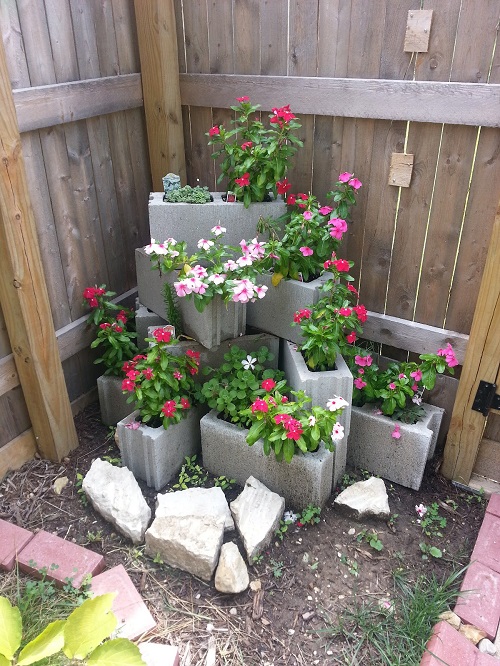
You can use cinder blocks to plant your favorite flowers. They are quite heavy so only go with this option if you’re certain you’re not gonna move them to a new place in a few weeks. Turn them sideways, fill them up with soil, and voila!
22. Luffa Planting for Natural Sponges
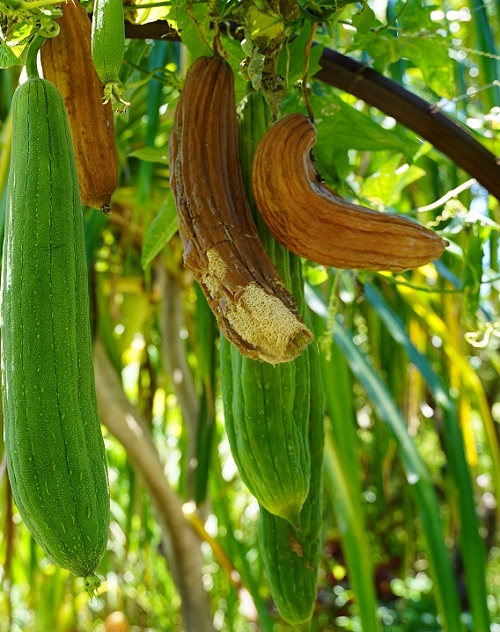
Luffa plants produce natural sponges that you can use to clean pretty much every surface. If you’re growing one of these, go check if it has sponges. Just harvest them and use them. It’s really that easy.
23. Plastic Forks for Deer Control
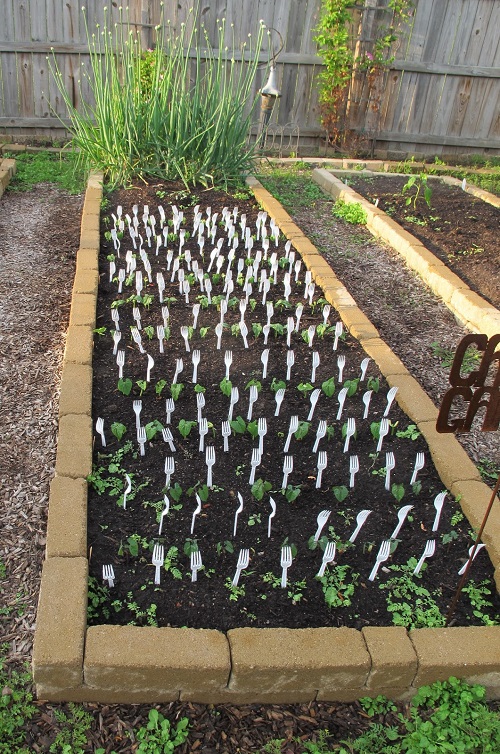
Whenever deer or rabbits try to harm your plants, they would stay away because of the plastic forks. Plus, they’re made of plastic so they won’t harm the animals and most likely break if they do step on one of them.
24. Newspaper Mulch for Weed Control
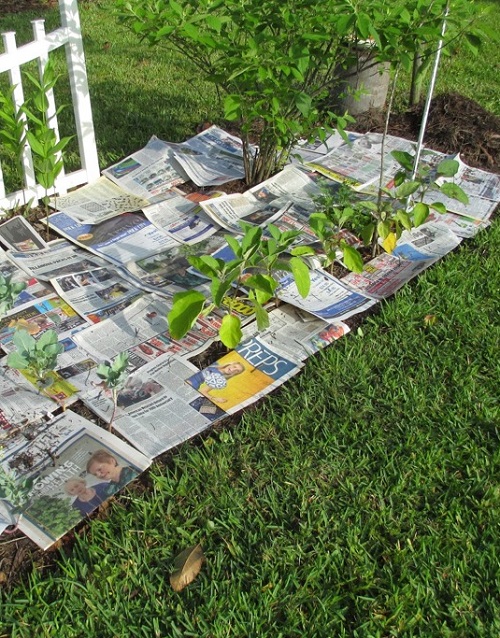
Are you getting tired of weeds growing in the garden? You can use newspaper sheets as a garden mulch alternative. Just wet them a bit with water and place them around the plant’s base like the image. Bye-bye weeds.
25. Molasses as a Natural Fertilizer
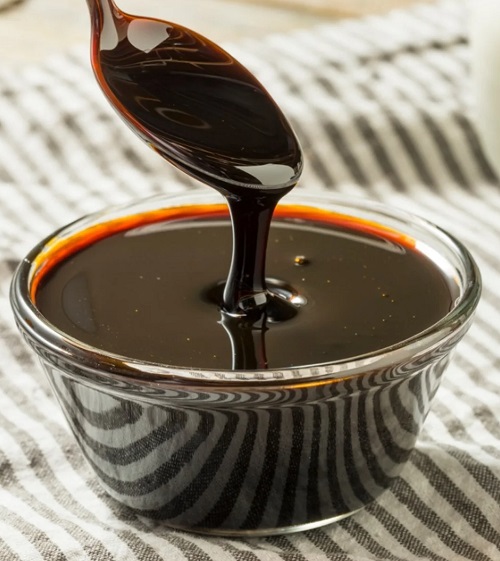
Molasses have tons of carbohydrates and trace minerals that are good for beneficial microorganisms. Add it around flowers like roses after diluting them in water in a ratio of 1:3.
26. Planting Nasturtiums for Pest Control
Nasturtium flowers are not just ornamental; they’re a trap crop for aphids and should be planted in vegetable gardens to save the produce. As they die, they enrich the soil with potassium, nitrogen, and calcium.
27. Beer Traps for Slug Control
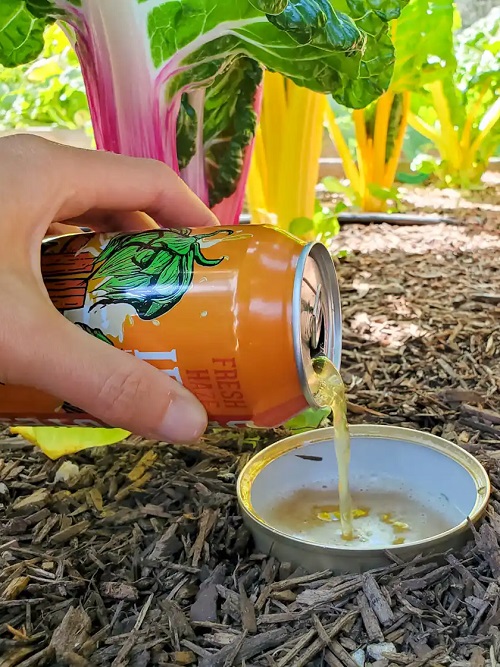
Whoever thought slugs are a fan of beer just as much as us? You can use it as a slug trap by pouring a bit of it into a shallow dish. The slugs will avoid the plants and go straight towards the beer.
28. Salt for Killing Weeds in Pathways
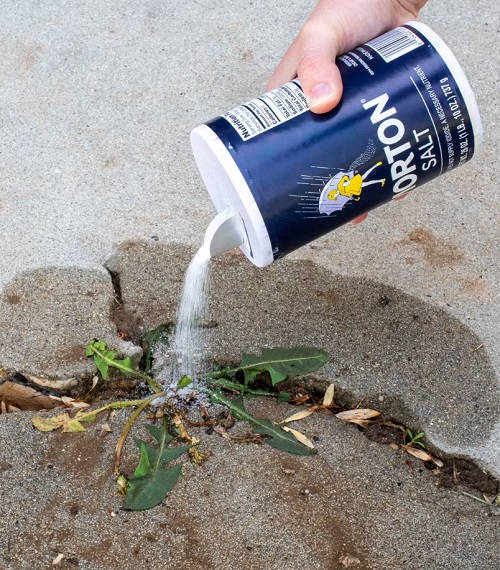
Salt is a dehydrator, which is not a surprise, so you can use it around the base of unwanted weeds, and it will dry them up, eventually killing them. Be careful not to pour it around healthy plants, though, or you’ll lose them too.
29. Cornmeal for Weed Seed Control
Salt works for weeds, and cornmeal works for the seeds that the weeds leave behind. It stops seed germination, so sprinkle it in areas where you need to control the growth and spread of weeds.
30. Pine Needles as Mulch for Acid-Loving Plants
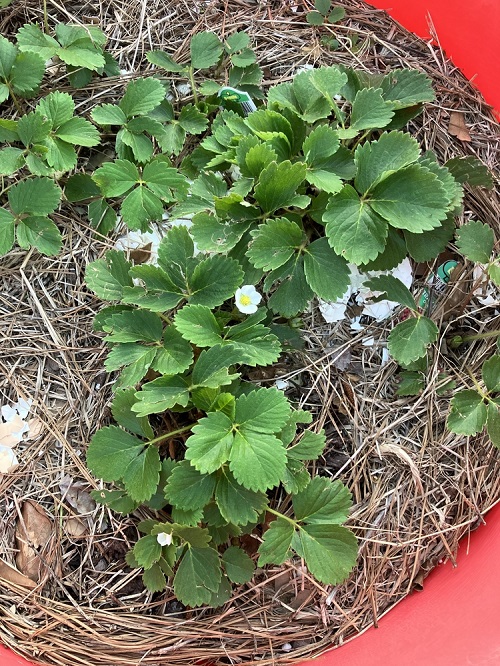
Pine needles are a natural acidifier for the soil, and you can spread a few of these around the base of acid-loving plants for healthier growth. Try it with rhododendrons and see the change.
31. Creating Water Reservoirs with Plastic Bottles
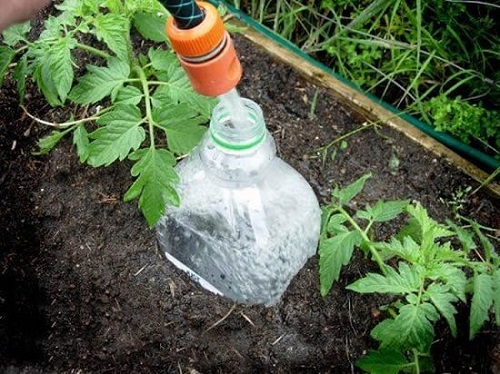
This is an unconventional but amazing way to take care of your plants and water them slowly. Cut off the bottom of a plastic bottle and bury it near the plants, keeping the neck above the ground level.
Fill it up with the amount of water you want to give the nearby plants, and it will release it slowly into the soil.
32. Heated Bricks for Frost Protection
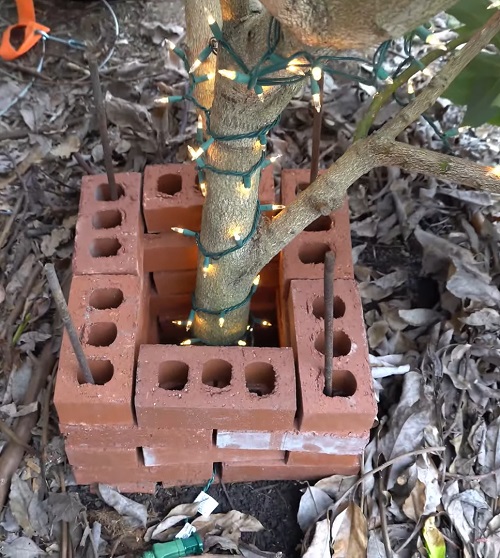
Bricks can retain heat for a long time and can help you save your plants from frost if you cannot bring them indoors. Just heat them in the oven or in direct sunlight and lay them around the plant during the night.
33. Using Pantyhose for Melon Support
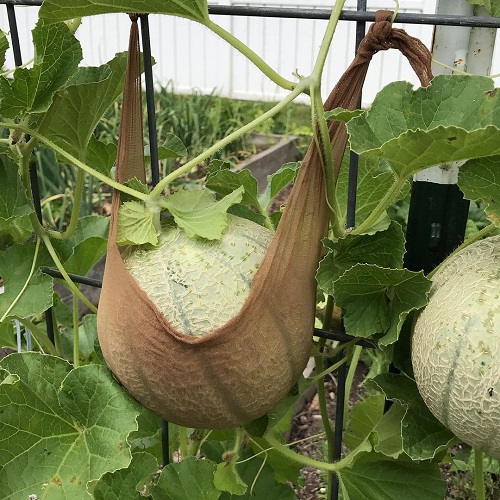
Pantyhoses aren’t just for supporting the legs; you can use these while growing melons or squashes vertically, and they’ll hold the weight without snapping. It’s a great trick if you want to save space.
34. Seaweed Mulch for Nutrient Boost
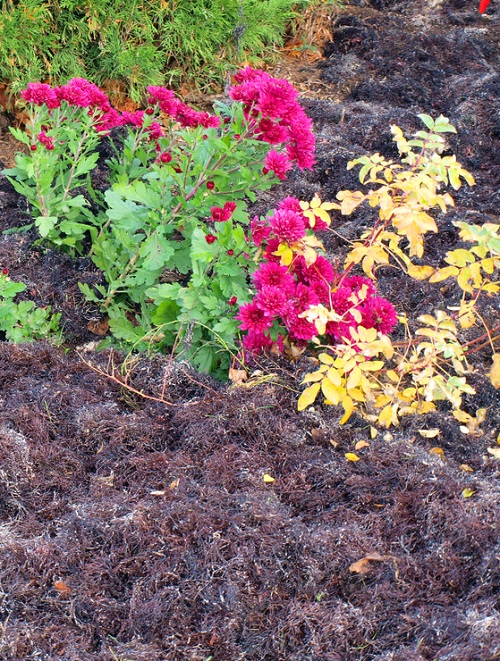
Seaweed mulch is a natural way to boost your garden’s nutrition. It slowly releases micronutrients into the soil as they decompose; the plants absorb them. To use it, simply spread a 2-inch layer around the base of your plants.
35. Using Old CDs to Scare Birds
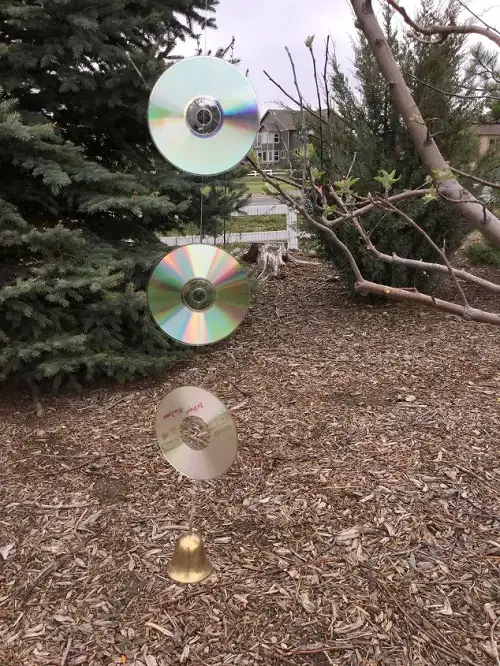
Reflective surfaces are not just to keep away aphids; they also send birds flying away. Hang a few of these in the garden and watch those pesky birds disappear.
36. Planting Marigolds for Nematode Control
Marigold roots release a substance called alpha-terthienyl that’s toxic to certain nematodes, particularly root-knot and lesion nematodes. So, if you have a nematode problem, plant marigolds in the garden.
37. Burying Fish for Fertilizer
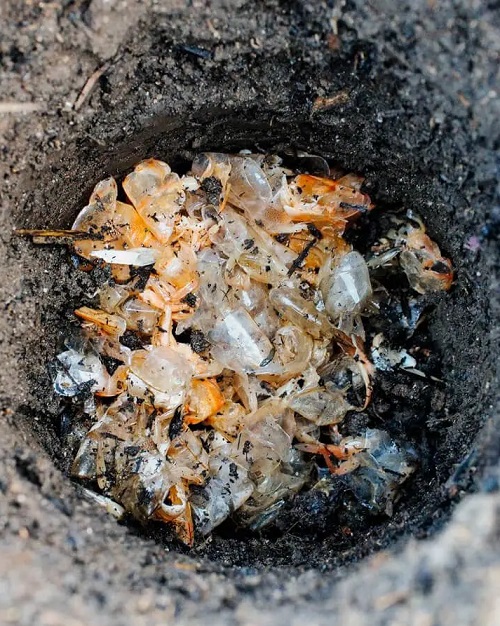
As the fish decomposes, it releases nutrients like nitrogen, phosphorus, and potassium, helping the plants grow. Just one fish head is enough for the entire growing season.


